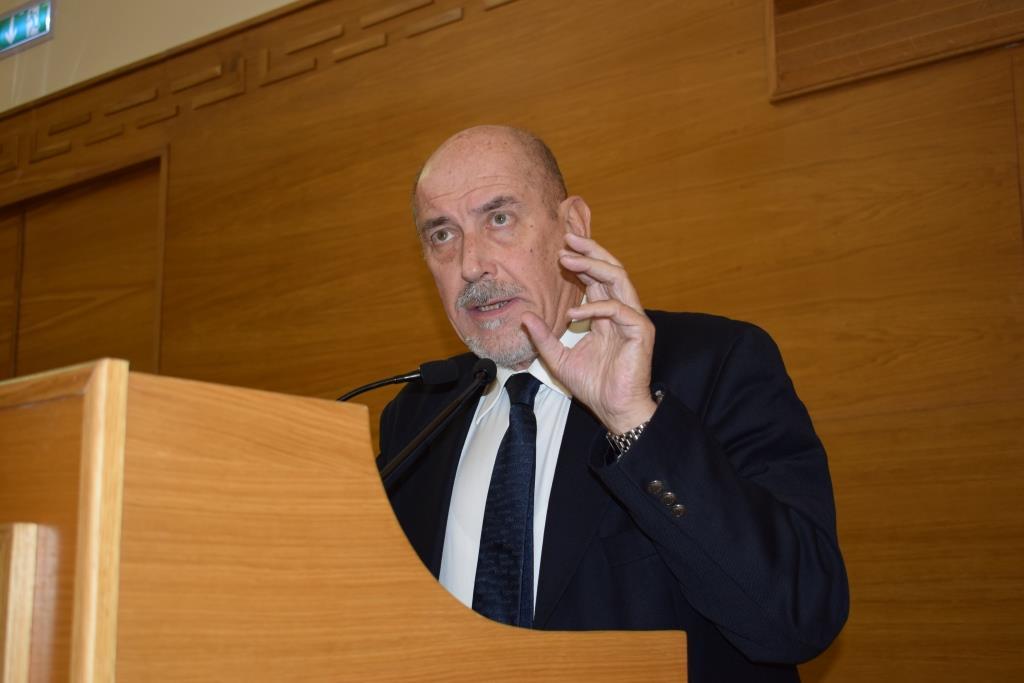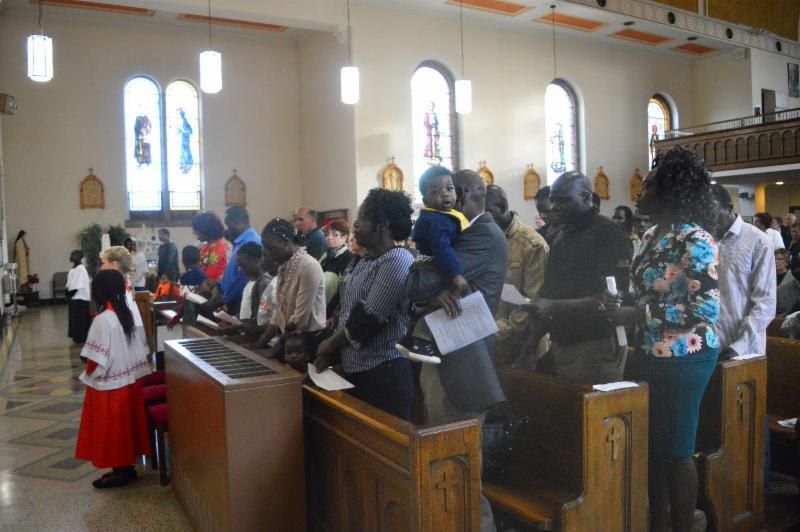Daniel Comboni
Missionnaires Comboniens
Zone institutionnelle
D’autres liens
Newsletter
Monday, January 31, 2022
Father Renzo Carraro is an Italian Comboni missionary who is working in Manila (Philippines). He wrote several reflections on the Writings of St. Daniel Comboni which, according to Fr. Renzo, constitute “A priceless treasure”. “The collection of letters written by Saint Daniel Comboni in his lifetime constitutes a unique opening into his heroic missionary heart and single-minded commitment to Africa”, says the missionary. [See the attachment]
Sometimes in 1983, working in the library in Kampala, Uganda, I noticed several new volumes just arrived, which were only xeroxed but well bound: it was the first attempt to publish the writings of Saint Daniel Comboni which had been collected from the different places where they were kept.
Eventually, in 1991, they were printed in a single volume of more than two thousand pages. The Italian originals were later translated into the other four official languages of the congregation: English, Spanish, Portuguese and German. In this way, the priceless treasure is now available to all. Those who have completed the not easy task of going through the whole thick volume have given witness to the powerful effect that the systematic exposure to Comboni’s Writings has on the reader.
Comboni wrote copiously during his lifetime. To take a simple example: in a letter dated May 21, 1871, he stated that he had already written 1345 letters since the beginning of January. From this immense body of work, 1200 documents are known to be preserved today in archives, libraries or private collections. The whole letters are only 842, some very long, including reports to superiors or to humanitarian societies.
Comboni was a man of action and certainly never envisaged the possibility of his letters being published. This is why such writings are so revealing, in a direct and genuine way, of his true personality. In them we see the man, in his total involvement with the African problem, his emotional temperament and the attention he dedicated to the reality of the mission.
Even though his vision of humanity was optimistic, he never failed to enter into lively polemics, especially when it came to defending his missionaries and their activity. His expressions of love and faith in God are spontaneous and illustrate the consistence and passion with which he lived his vocation for Africa.
Here we have a sample: “After all this, I have only one thing to add. It is necessary to suffer many things for the love of Christ, to fight with the powerful, with the Turks, with atheists and Freemasons, with barbarians, with the elements, with priests, with friars, with the world and with Hell. But the one who trust in himself, trusts in the greatest ass of this world”.
“All our trust is in the One who died for the Africans and who chooses the weakest instrument to achieve his works; for he wants to show that he is the author of good, and as for us, alone, we can only do evil. Since it is he who has called us to this work, with his grace we shall triumph over Pashas, Freemasons, atheistic governments, over the distorted thoughts of the good, the cunning of the wicked, and the snares of the world and of Hell” (2459).
We will keep dipping into this treasure in the coming chapters.
LETTERS FROM A JOURNEY
In 1857 young Comboni set out for the first time for Africa. Here is a sample of the long letters to his parents which he wrote during that journey.
THE FRIENDSHIP OF TWO GIFTED YOUTHS
Daniel Comboni was 34 and in the prime of his life and Blessed Marie Deluil-Martiny only 24. The Sacred Heart of Jesus became their “center of communication”.
THE VISION OF A MAN IN LOVE
In 1864, while praying at the tomb of Saint Peter in Rome, Daniel Comboni conceived the “Plan for the Regeneration of Africa”, a genial intuition which contributed to his life-long dream coming true.
WOMEN OF THE GOSPEL
Protagonists of that heroic time of Mission together with Bishop Comboni are the women religious. Of this he was a conscious and happy witness and promoter.
THE PROFILE OF A MISSIONARY
Bishop Comboni’s words of appreciation for one of his missionaries show us how the Saint was boosting the morale of his group which was so diverse for formation, age and nationality.
A LOVE AFFAIR WITH THE NUBA PEOPLE
The Nuba people of the Sudan was the object of Comboni’ dreams as a missionary to Africa. Only later in life he managed to visit them and establish missions among them.
THE LAST SAFARI
Three months before dying, Comboni succeeded in visiting the green hills of his beloved Nuba people. The journey filled him with joy and yet will contribute to take him to his grave before time.
STANDING UP FOR THE OPPRESSED
Bishop Comboni was in agony over one of his spiritual daughters unjustly accused. The way he stood by her shows his extraordinary, heroic courage, forgetful of self.
COMBONI AND HIS FATHER
The love of Bishop Comboni for his father, also his only family member, is witnessed by the many, long and tender letters he kept writing to him throughout his life.
COMBONI AND MANY CROSSED
Throughout his life Saint Daniel Comboni experienced many sufferings of all kinds. He came to the conviction that the works of God are born at the foot of the Cross.
THE LAST LETTER
Bishop Comboni is dying prematurely in Khartoum. The hand that has written thousands of letters is now tired. His last sentences are an act of trust in God.
[Fr. Renzo Carraro – comboni.org]





